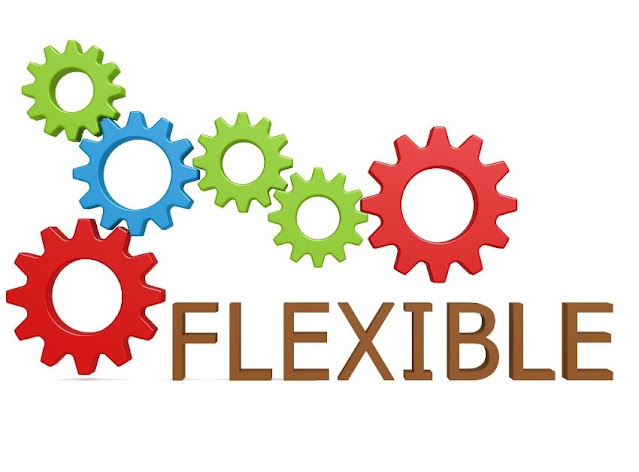Here are expert insights on real-world contracts to highlight the differences now. If you are a reader of this article and are passionate about blockchain and smart contracts, with a desire to earn money in the crypto space, then this is an opportunity for you: https://5fingersgroup.com/mymetaforce/
The advent of blockchain technology has introduced new and innovative ways of conducting business, and smart contracts have emerged as a prominent application of this technology. Smart contracts are self-executing contracts with the terms of the agreement directly written into code and deployed on a blockchain platform. They offer distinct advantages over traditional contracts used in real-world scenarios. In this article, we will explore the seven key differences between smart contracts on blockchain and traditional contracts in real life.
1. Automation and Self-execution
One of the fundamental differences between smart contracts and traditional contracts is their ability to automate and self-execute. Smart contracts are written in code, which contains the logic and rules that govern the contract. Once deployed on the blockchain, smart contracts automatically execute when predefined conditions are met without the need for intermediaries or third-party authorization. This automation and self-execution feature of smart contracts eliminates the need for manual intervention and reduces the potential for human errors, delays, and disputes that are common in traditional contracts.
In contrast, traditional contracts in real life require manual intervention at various stages of the contract lifecycle. Parties involved in a traditional contract need to manually draft, review, negotiate, and sign the contract, and then rely on intermediaries, such as lawyers or notaries, to enforce the terms of the contract. This manual process can be time-consuming, costly, and prone to errors and disputes.
2. Transparency and Immutability
Smart contracts on blockchain offer transparency and immutability, which are not readily achievable in traditional contracts. Transparency refers to the visibility of the contract terms and actions to all parties involved, while immutability refers to the inability to alter or delete the contract once it is deployed on the blockchain.
- Smart contracts are stored on the blockchain, which is a distributed and decentralized ledger. This means that all parties involved in a smart contract can have access to the contract terms and actions, and any changes made to the contract are recorded on the blockchain and visible to all parties. This transparency ensures that all parties have a clear understanding of the contract terms and the actions performed by the contract, reducing the potential for disputes and misunderstandings.
- Immutability is a crucial feature of smart contracts on blockchain. Once a smart contract is deployed on the blockchain, it cannot be altered or deleted, and the contract terms and actions are recorded on the blockchain permanently. This immutability ensures that the integrity of the contract is maintained, and the contract cannot be tampered with or manipulated by any party, providing a high level of security and trust.
3. Decentralization and Trust
Decentralization and trust are inherent features of smart contracts on blockchain that differentiate them from traditional contracts. Blockchain is a distributed and decentralized ledger, where smart contracts are stored and executed. This means that there is no single point of failure, and the control of the contract is not centralized in the hands of any single party.
- Smart contracts on blockchain are designed to operate in a trustless environment, where parties do not need to trust each other explicitly. The trust is established through the consensus mechanism of the blockchain, where the validity and integrity of the contract are verified and agreed upon by the network of nodes in the blockchain. This decentralized nature of smart contracts on blockchain reduces the need for trust in intermediaries and minimizes the potential for fraud or manipulation.
In contrast, traditional contracts in real life often require trust in intermediaries, such as lawyers, notaries, or other third parties, to ensure the validity and enforcement of the contract. The reliance on intermediaries for trust can be time-consuming,costly, and may still carry the risk of human error or fraud.
4. Security and Privacy
Smart contracts on blockchain offer enhanced security and privacy compared to traditional contracts. Blockchain technology uses advanced cryptographic techniques to secure the data and transactions on the blockchain. The code of smart contracts is stored on the blockchain in an encrypted format, making it highly resistant to tampering or unauthorized access.
- Additionally, smart contracts on blockchain are executed using a consensus mechanism, where the network of nodes validates and agrees upon the execution of the contract. This consensus mechanism ensures the integrity and security of the contract, as any malicious attempt to alter the contract would be detected and rejected by the network.
- Furthermore, smart contracts on blockchain provide privacy to the parties involved. While the details of the contract and the transactions are stored on the blockchain, the identities of the parties involved in the contract can be kept confidential or pseudonymous, depending on the design of the blockchain network. This privacy feature protects the parties from potential risks, such as identity theft or information leakage, which can be concerns in traditional contracts where personal information may be shared among multiple parties.
On the other hand, traditional contracts in real life may lack the same level of security and privacy. Paper-based contracts or digital contracts stored on centralized systems can be vulnerable to physical damage, loss, or unauthorized access. The reliance on multiple parties for validation and enforcement of the contract may also increase the risk of security breaches or privacy violations.
5. Efficiency and Cost-effectiveness
Smart contracts on blockchain offer significant efficiencies and cost-effectiveness compared to traditional contracts. The automation and self-execution feature of smart contracts eliminate the need for manual intervention and reduce the time and effort required to complete contract-related tasks, such as drafting, reviewing, and signing.
- Smart contracts on blockchain also reduce the need for intermediaries or third parties, such as lawyers or notaries, for validation and enforcement of the contract. This eliminates the associated costs of intermediaries, which can be substantial in traditional contracts. The consensus mechanism of the blockchain also reduces the potential for disputes and delays, which can result in additional costs in traditional contracts.
- Moreover, smart contracts on blockchain can enable new business models and revenue streams through the use of tokens or cryptocurrencies as a form of payment or value exchange. This can streamline the payment process, reduce transaction fees, and enable cross-border transactions without the need for traditional financial intermediaries, resulting in cost savings.
In contrast, traditional contracts in real life can be time-consuming, labor-intensive, and costly, involving multiple parties, manual processes, and potential disputes. The reliance on intermediaries for validation and enforcement of the contract can also add significant costs to the overall contract process.
6. Accessibility and Inclusivity
Smart contracts on blockchain have the potential to increase accessibility and inclusivity in contract transactions. Blockchain technology operates on a decentralized network that is open to anyone with an internet connection, allowing parties from different parts of the world to participate in contract transactions without the need for intermediaries or traditional financial systems.
- Smart contracts on blockchain can enable transactions in areas where traditional financial systems may be inaccessible, unreliable, or expensive. For example, in developing countries or regions with limited access to banking services, smart contracts on blockchain can provide an alternative means of conducting transactions, exchanging value, and entering into contracts.
- Furthermore, smart contracts on blockchain can enable new business models, such as decentralized applications (dApps) or decentralized finance (DeFi), which provide opportunities for individuals or small businesses to participate in contract transactions and financial activities without the need for intermediaries or extensive financial resources.
In contrast, traditional contracts in real life may be limited in accessibility and inclusivity, as they often require the involvement of intermediaries, financial institutions, or legal systems, which may not be easily accessible to everyone or may have prohibitive costs.
7. Flexibility and Programmability
One of the key differences between smart contracts on blockchain and traditional contracts is the flexibility and programmability of smart contracts. Smart contracts are typically written in code and can be customized to suit the specific needs of the parties involved. This allows for a high degree of flexibility in defining the terms and conditions of the contract, as well as the ability to automate various tasks and actions.
- Smart contracts on blockchain can be programmed to execute automatically based on predefined conditions or triggers, without the need for manual intervention. For example, a smart contract can be programmed to release funds to a contractor once certain milestones are met, or to automatically transfer ownership of a digital asset once payment is received. This automation can significantly streamline the contract process and reduce the potential for disputes or delays.
- Furthermore, smart contracts on blockchain can be interconnected or combined to create more complex and sophisticated applications. For example, multiple smart contracts can be linked together to create a supply chain management system, where each contract represents a specific task or action within the supply chain process. This interoperability and composability of smart contracts can enable new possibilities for business processes and collaborations.
In contrast, traditional contracts in real life are typically static and rigid, with limited flexibility in terms of customization or automation. Once a traditional contract is signed, any changes or modifications may require additional negotiations, approvals, or legal processes, which can be time-consuming and costly. The lack of programmability in traditional contracts may also limit the potential for innovation or optimization in business processes.
Conclusion
In summary, smart contracts on blockchain offer several key differences compared to traditional contracts in real life. Smart contracts are self-executing, transparent, secure, and efficient, with automation, consensus, and privacy features. They also offer accessibility, inclusivity, and programmability, allowing for a higher degree of flexibility and innovation in contract transactions.
- Smart contracts on blockchain have the potential to revolutionize various industries and business processes, ranging from finance and supply chain management to real estate and intellectual property. However, it's important to note that smart contracts are still relatively new technology and may have their limitations and risks, such as regulatory compliance, technical vulnerabilities, and potential disputes in case of errors or unforeseen circumstances.
As blockchain technology continues to evolve and gain wider adoption, smart contracts are likely to play an increasingly important role in the way contracts are created, executed, and enforced. It's important for businesses, governments, and individuals to understand the unique features of smart contracts on blockchain and explore the opportunities and challenges they present in the world of contracts and transactions.


















